After Being Unsuccessful For Almost 20 Years, This Farmer Managed To Grow Australia’s First Ever Seedless Lychees
Having been brought up in a culture that values all things homegrown, I have a special appreciation for fruit and vegetables. Harvesting it all tends to be a bit of a hassle, but it’s always worthwhile.
Everyone has their favorites. The banana seems to be the best choice among the people I know: it’s an optimum-sized fruit that is not messy and, above all, doesn’t have any seeds or pits. In fact, these are the main criteria that determine how popular a fruit will be. Well, the market hears that and delivers.
Meet Tibby Dixon, the man who grew the first ever seedless lychee fruit in Australia
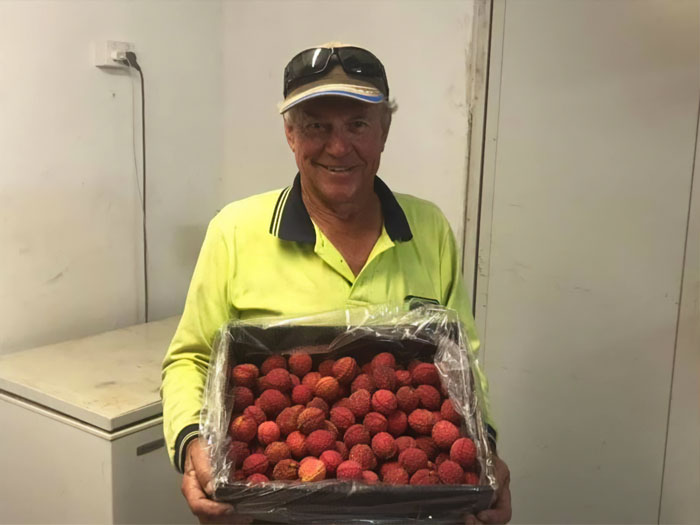
Image credits: Camilleri’s Farm Market
19 years ago, a farmer by the name of Tibby Dixon from North Queensland, Australia bought a lychee (pronounced lie-chee, rhymes with crikey) tree from China. He spent $5,000 Australian dollars on this purchase with the hopes of breaking away from traditional fruit farming & starting to experiment with new fruit varieties that would be sold to other farmers.
Well, fast forward all those years and this same farmer successfully grows the first seedless lychee fruit in Australia. It took him nearly 20 years of painstaking work with selective breeding from just one tree to pull this off. Sounds amazing, doesn’t it?
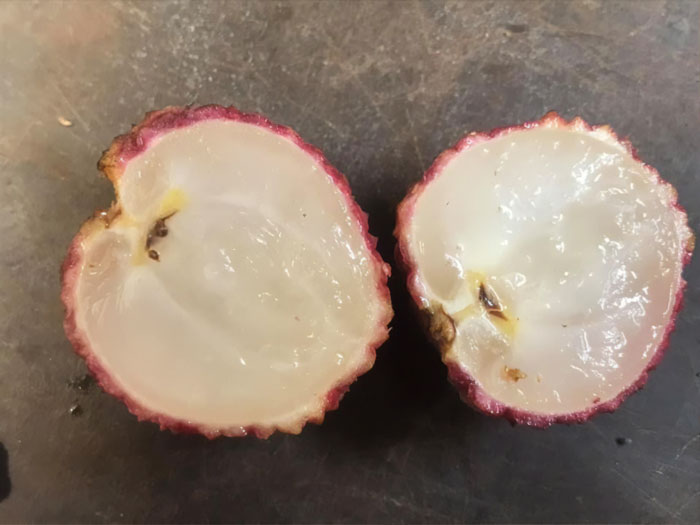
Image credits: Camilleri’s Farm Market
It took him 19 years to selectively breed the seedless variety of lychee fruit
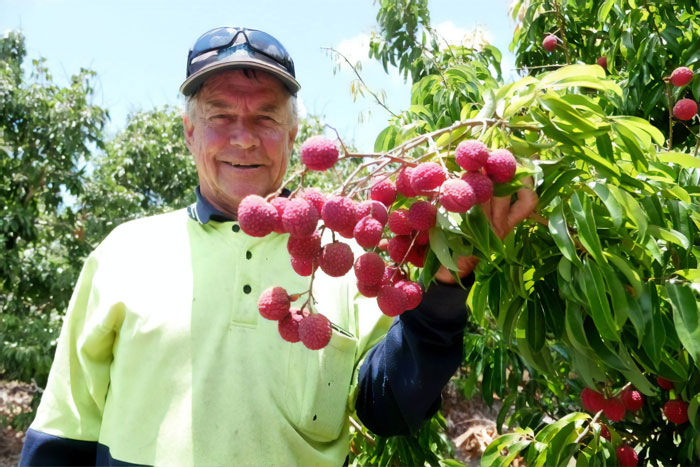
Image credits: ABC / Melanie Groves
These newly-bred seedless lychees are considered a medium-size fruit, roughly 4–5 centimeters (1.5–1.9 inches) in diameter. It comes in varying shades of red, ranging from raspberry to dark cherry red. The inside is white and squishy—and, of course, seedless.
Lichees (Lat. Litchi chinensis) are the only members within the genus Litchi of soapberry family (Lat. Sapindaceae). It is a tropical fruit tree hailing from Southeast China, cultivation records of which date back to the 11th century. While China is the largest producer of lychee fruit, other countries in Southeast Asia, the Indian Subcontinent, and South Africa also grow them.
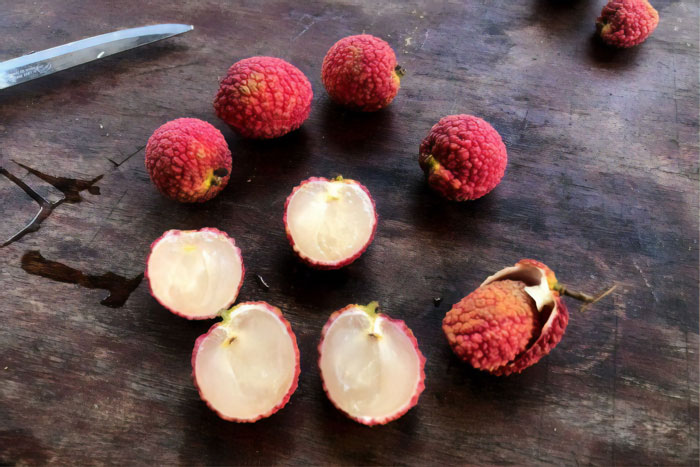
Image credits: ABC / Melanie Groves
Dixon initially paid 5,000 dollars for his first lychee tree, which was brought in from China
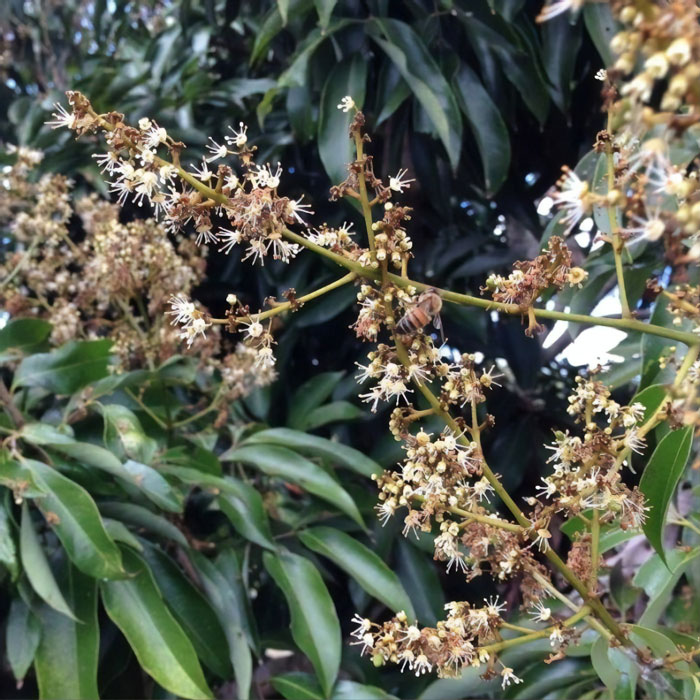
Image credits: ABC/ Renee Cluff
Growing the seedless lychees was a bit of a challenge for a number of reasons. Besides selective breeding and cross-pollination requiring knowledge and skill, time is also a necessity as several generations of plants have to pass until the desired plant characteristic develops. Apart from that, it also demands proper tools and labor. And even then it is all up to chance because of genetics.
Even though it is difficult to explain the seedless lychee’s taste as everyone experiences it differently, the best that Mr. Dixon could explain was that it tastes a little bit like a pineapple. What is definitely sure is that it is taste-wise very different from all of the cultivars available.
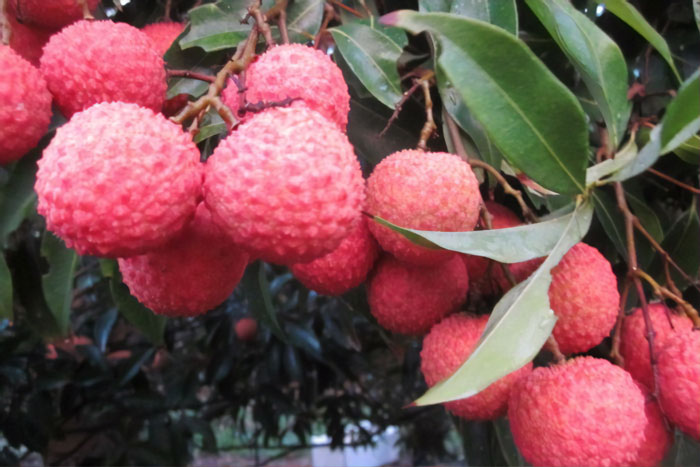
Image credits: ABC / Derek Foley
Camilleri’s Farm Market also shared a video of Dixon introducing the new seedless lychees
Video Source: Camilleri’s Farm Market
Tibby Dixon has been growing lychees for nearly 40 years now, all in Sarina, Queensland. For the last 10 years, he made sure to always have new varieties of lychees.
He was able to harvest a few kilograms of the seedless lychees this time around. So, putting the new-found fruit on store shelves won’t be possible for another several years. However, the farmer is planning on growing the trees to establish more plants, eventually leading to the commercialization of the seedless fruit.
What are some of your favorite fruits? Let us know in the comments below!
by Robertas Lisickis via Bored Panda - Source

No comments: